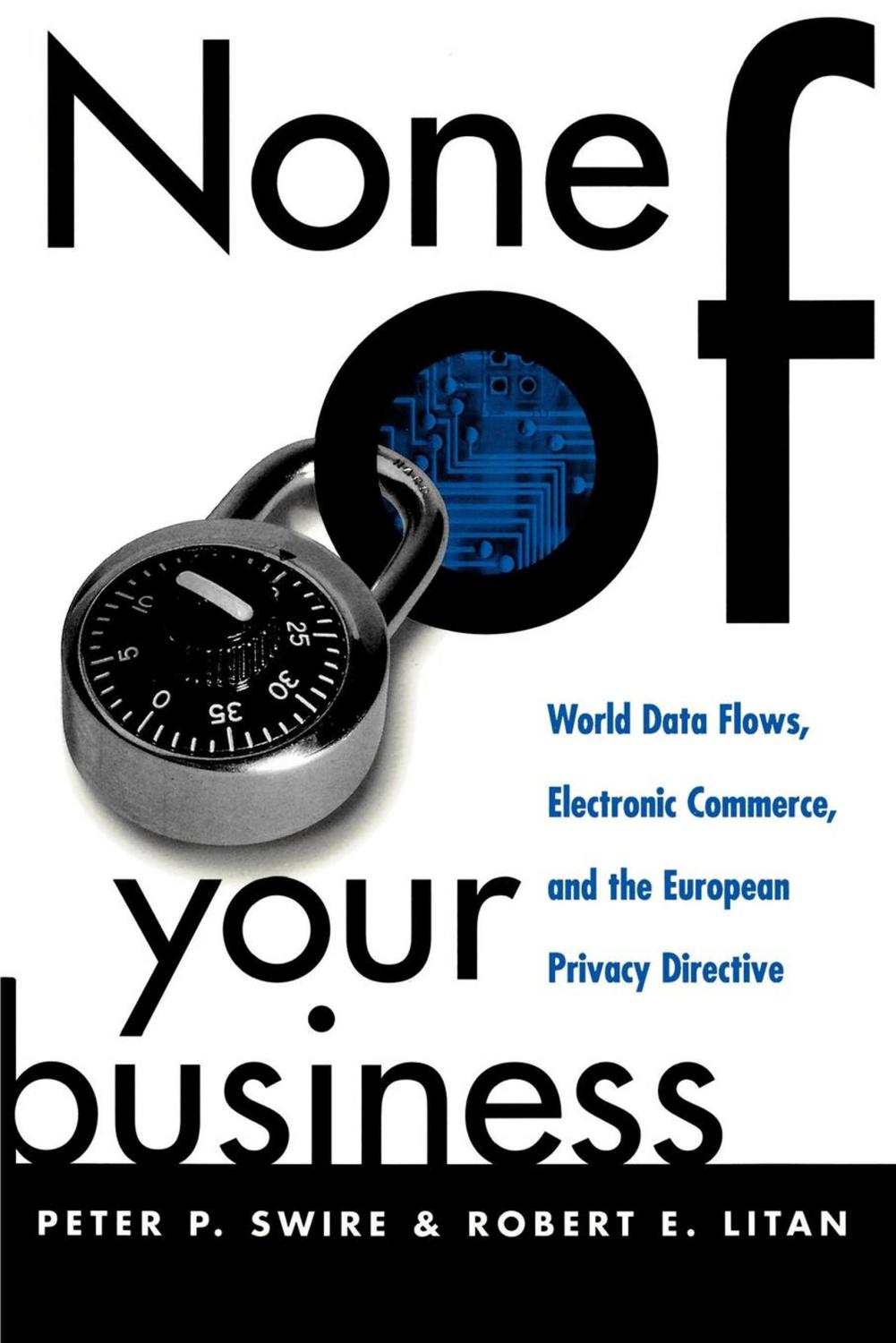The historic European Union Directive on Data Protection will take effect in October 1998. A key provision will prohibit transfer of personal information from Europe to other countries if they lack “adequate” protection of privacy. If enforced as written, the Directive could create enormous obstacles to commerce between Europe and other countries, such as the United States, that do not have comprehensive privacy statutes.
In this book, Peter Swire and Robert Litan provide the first detailed analysis of the sector-by-sector effects of the Directive. They examine such topics as the text of the Directive, the tension between privacy laws and modern information technologies, issues affecting a wide range of businesses and other organizations, effects on the financial services sector, and effects on other prominent sectors with large transborder data flows. In light of the many and significant effects of the Directive as written, the book concludes with detailed policy recommendations on how to avoid a coming trade war with Europe.
The book will be of interest to the wide range of individuals and organizations affected by the important new European privacy laws. More generally, the privacy clash discussed in the book will prove a major precedent for how electronic commerce and world data flows will be governed in the Internet Age.
Praise for None of Your Business
“This book, by two of America’s leading experts in the law of data privacy, confronts the looming threat of Europe’s data privacy regime. By assessing a wide range of factors, both legal and nonlegal, that contribute to the protection of privacy in the United States, the book gives a clear and balanced picture of the gaps in America’s protections for privacy that remain. The completeness of this careful account, tied with the specific policy proposals offered at the end, make this an extraordinary contribution to solving one of the most significant conflicts raised by the Internet and the free exchange of information its present architecture presumes.”
—Lawrence Lessig, Harvard Law School
“None of Your Business is the most comprehensive treatment of the effect of the European Privacy Directive on data flows in the United States yet written. The book shows the Directive’s implications for information transfers to the United States and the ability to use data in this country to be potentially extraordinary. The authors make a powerful case for the need for the development of data policy and practice in this country and make a number of extremely useful suggestions as to how that might be engineered.”
—Arthur R. Miller, Harvard Law School
“Under the new European Union Data Protection Directive, thousands of American companies doing business in Europe will break the law if they send personally identified data on their European customers or employees back to the U.S. for regular processing and administration. This is one of the disturbing developments analyzed lucidly by Swire and Litan in a book that illuminates the dilemmas of writing privacy protection rules that are applied across different legal and political cultures, and that attempt to regulate information technology settings that are mutating almost in lightspeed. Their book is an absolute necessity for businesses operating in the global arena, for the lawyers advising such companies, and for government officials in all countries who want to develop a global data protection system that serves both privacy and consumer choice in the 21st century.”
—Alan Westin, Columbia University
Authors

Peter P. Swire is professor of law at the Ohio State University College of Law. He is editor of the Cyberspace Law Abstracts and has written on cryptography, cyberbanking, and the legal regulation of the Internet.
Robert E. Litan is a senior fellow in Economic Studies at the Brookings Institution and vice president for research and policy at the Kauffman Foundation. Among his many books is Good Capitalism, Bad Capitalism, and the Economics of Growth and Prosperity (Yale University Press, 2007), written with William J. Baumol and Carl J. Schramm.
